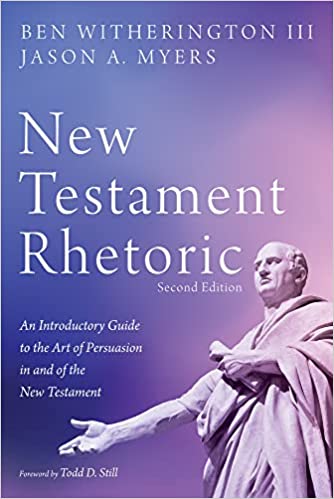Writing in the last third of the first century AD., Quintilian took the trouble to sum up the essence and scope of both Greek and Latin rhetoric, providing posterity with an invaluable handbook, the Institutions of Oration. He was born a little after the time of Jesus’ death in the 30s, and he died somewhere around 96 A.D. Though born in northern Spain, it appears his main education came in Rome from the then famous rhetor–Domitius Afer. He practice law in Rome as an advocate, decided to return to his native land in about A.D. 57, but returned to Rome in 68 to teach rhetoric. Most importantly, during the reign of Vespasian (69-79) he became the very first state sponsored, salaried rhetorician in all of Rome. He maintained this position during the reign of Titus and the beginning of the reign of Domitian, retiring in about A.D. 88. He became educator of Domitian’s heirs, his two grand nephews, the children of Flavius Clemens, who obtained for him the final distinction of ‘honorary consul’. His rhetorical textbooks came out in twelve books not long before his death. Encyclopedia Britannica provides us with this useful summary of his master work…
“In Book I he therefore dealt with the stages of education before a boy entered the school of rhetoric itself, to which he came in Book II. These first two books contain his general observations on educational principles and are notable for their good sense and insight into human nature. Books III to XI are basically concerned with the five traditional “departments” of rhetoric: invention, arrangement, style, memory, and delivery. He also deals with the nature, value, origin, and function of rhetoric and with the different types of oratory, giving far more attention to forensic oratory (that used in legal proceedings) than to other types. During his general discussion of invention he also considers the successive, formal parts of a speech, including a lively chapter on the art of arousing laughter. Book X contains a well-known and much-praised survey of Greek and Latin authors, recommended to the young orator for study. Sometimes Quintilian agrees with the generally held estimate of a writer, but he is often independent in his judgments, especially when discussing Latin authors. Book XII deals with the ideal orator in action, after his training is completed: his character, the rules that he must follow in pleading a case, the style of his eloquence, and when he should retire.” (https://www.britannica.com/biography/Quintilian). In the next post we will attend to F.R.D. Goodyear’s assessment of Quintilian in the Cambridge Classics volume entitled The Early Principate .













